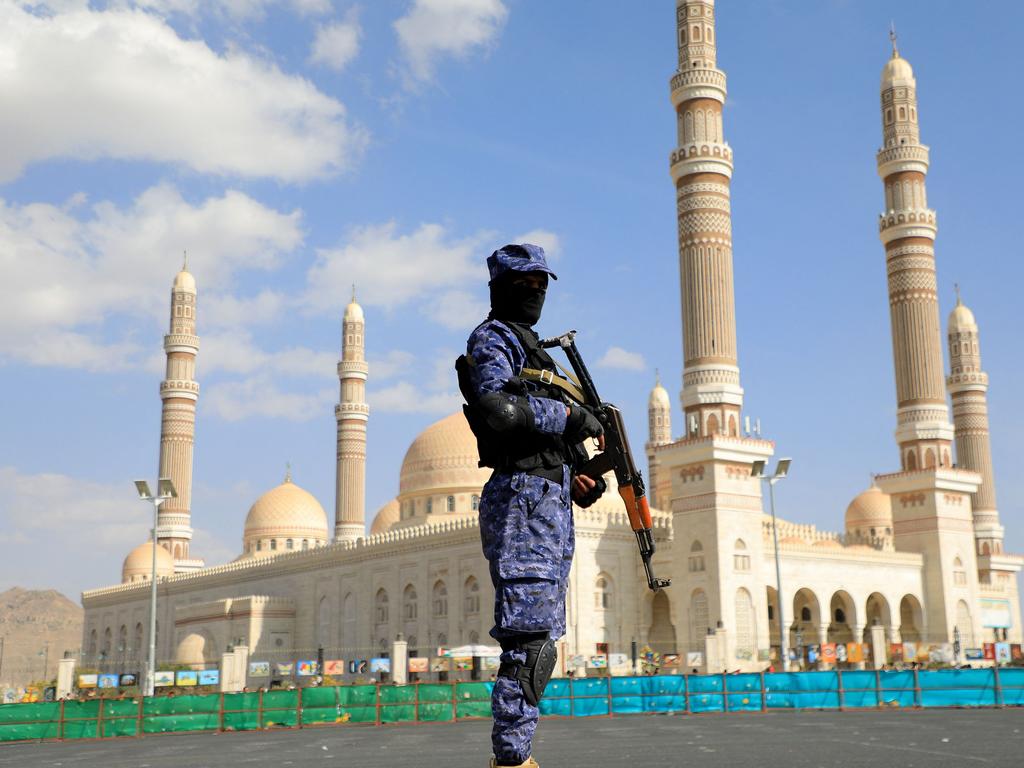Oil price increase: Global powers call for restraint as fears grow over major escalation in Yemen
A sudden surge of violence driven by rebel forces has world leaders on edge — and now it’s clear it could be painful for Australia, too.
Oil prices have surged after the sudden escalation of conflict in Yemen, sparking concerns that the violence could have flow-on effects for inflation in countries as far away as the US and Australia.
Several world leaders expressed concern after heavy US and British air strikes pounded targets in the rebel-held nation early on Friday.
The strikes came after weeks of disruptive attacks on Red Sea shipping by Iranian-backed Houthi forces. The rebels claim they are acting in solidarity with Hamas, which is currently in an all-out conflict with Israel following the October 7 attacks on civilians last year.
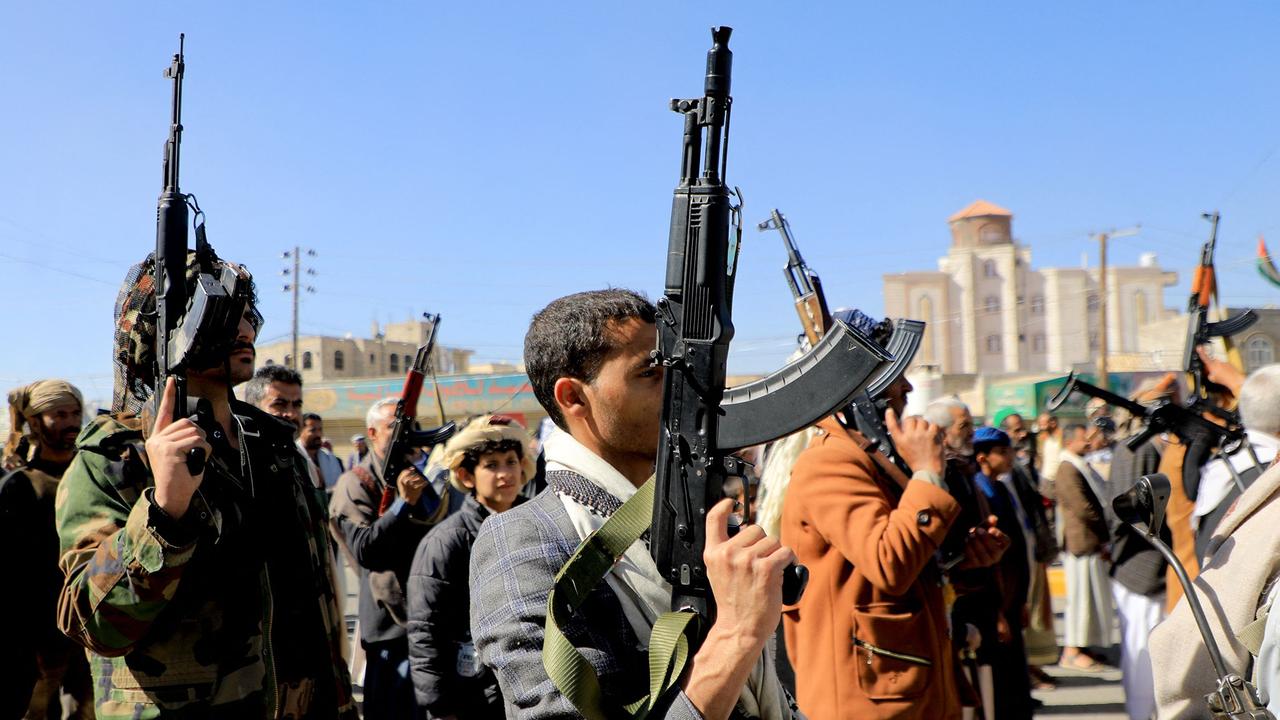
But an extended effect of the conflict became apparent later on Friday, when oil prices began to soar.
Prices of the commodity surged by four per cent in the hours after US and UK forces unleashed.
“The fear in the oil market is that the region is on an unpredictable escalating path, where at some point down the road supply of oil will indeed in the end be lost,” warned Bjarne Schieldrop, chief commodities analyst at Sweden’s SEB bank.
The jump in oil prices sparked concerns about fresh spikes in inflation, similar to those that occurred in countries including Australia, the US and UK in the early days of the war in Ukraine.
At its worst, that inflation could undo the work of reserve banks across the world, forcing them to push interest rates even higher and spelling mortgage pain for millions.
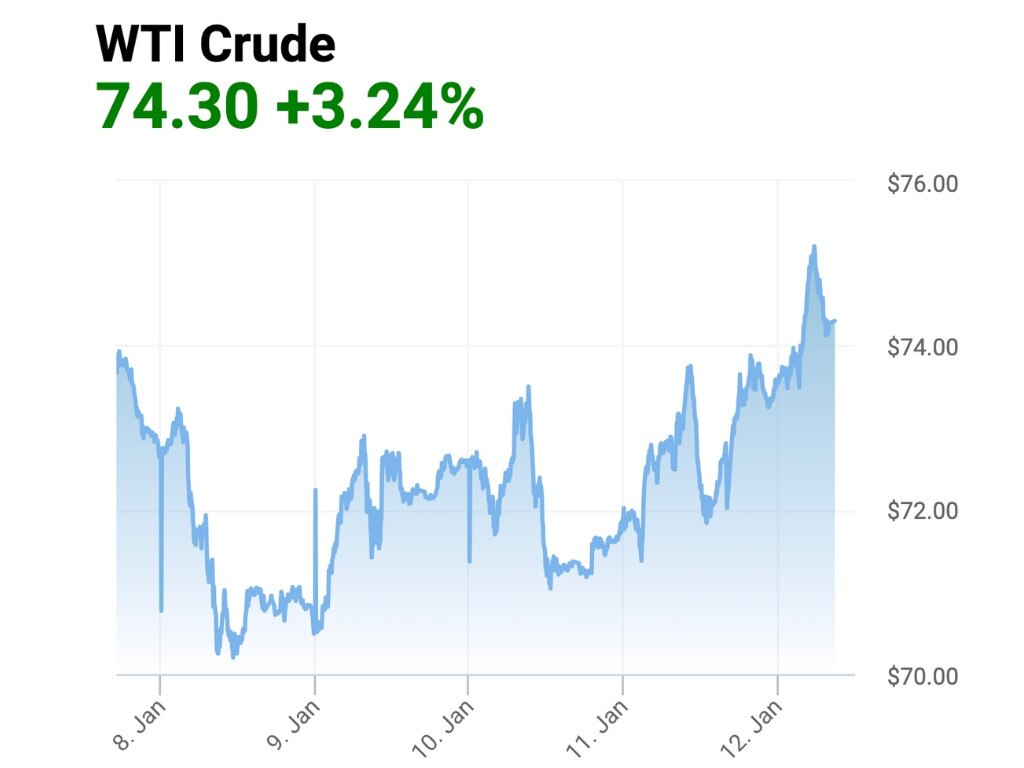
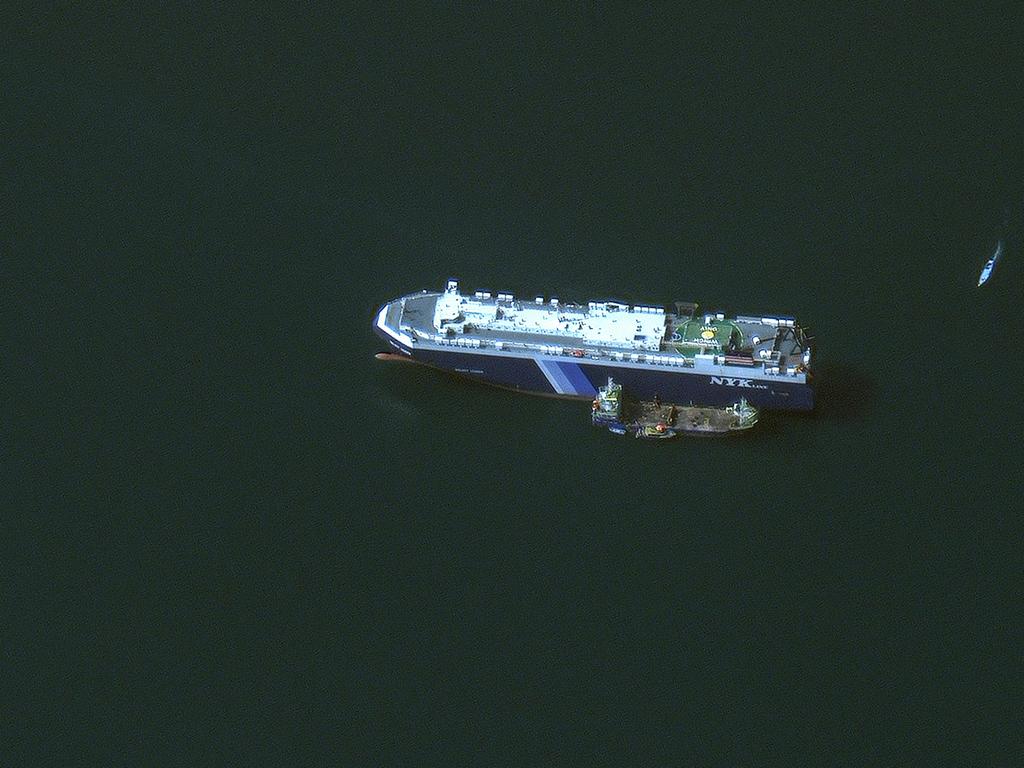
The Houthis have carried out a growing number of attacks on what they deem to be Israel-linked shipping in the key international trade route. They have controlled a major part of Yemen since a civil war erupted there in 2014 and are part of the Iran-backed “axis of resistance” arrayed against Israel.
On Friday, Yemen’s Houthi rebels vowed to continue targeting Israel-linked ships in the Red Sea despite overnight air strikes by the US and Britain.
“We affirm that there is absolutely no justification for this aggression against Yemen, as there was no threat to international navigation in the Red and Arabian Seas, and the targeting was and will continue to affect Israeli ships or those heading to the ports of occupied Palestine,” Mohammed Abdulsalam said.
The worrying scene has been met with condemnation from global powers. China has called for calm amid the violence, urging leaders to “exercise restraint” for fear of the conflict spilling over.
“China is concerned about the escalation of tensions in the Red Sea,” foreign ministry spokeswoman Mao Ning said.
“We urge the relevant parties to keep calm and exercise restraint, to prevent the conflict from expanding.”

UK Armed Forces Minister James Heappey has heavily criticised the Houthis, claiming they are attempting to hold global trade ransom.
“Whatever you think of the Houthis’ cause and their justification … we cannot allow them to seek to choke off global trade as a ransom to achieve whatever their political and diplomatic aims are,” he said.
Friday’s strikes targeted an air base, airports and a military camp, the Houthi rebels’ Al-Masirah TV station said, with AFP correspondents and witnesses also reporting they could hear bombardments.
“Our country was subjected to a massive aggressive attack by American and British ships, submarines and warplanes,” Houthi Deputy Foreign Minister Hussein Al-Ezzi said, according to official rebel media.
“America and Britain will have to prepare to pay a heavy price and bear all the dire consequences of this blatant aggression,” he said.
US President Joe Biden called the US and British strikes a “defensive action” after the Red Sea attacks and said he “will not hesitate” to order further military action if needed.
The strikes involved fighter jets and Tomahawk missiles, the US Air Forces Central Command said in a statement. Sixty targets at 16 Houthi locations were hit by more than 100 precision-guided munitions, it said.
“Today, at my direction, US military forces — together with the United Kingdom and with support from Australia, Bahrain, Canada, and the Netherlands — successfully conducted strikes against a number of targets in Yemen used by Houthi rebels to endanger freedom of navigation in one of the world’s most vital waterways,” Biden said.
Unverified images on social media, some of them purportedly of Al-Dailami air base north of Sanaa, showed explosions lighting up the sky as loud bangs and the roar of planes sounded.
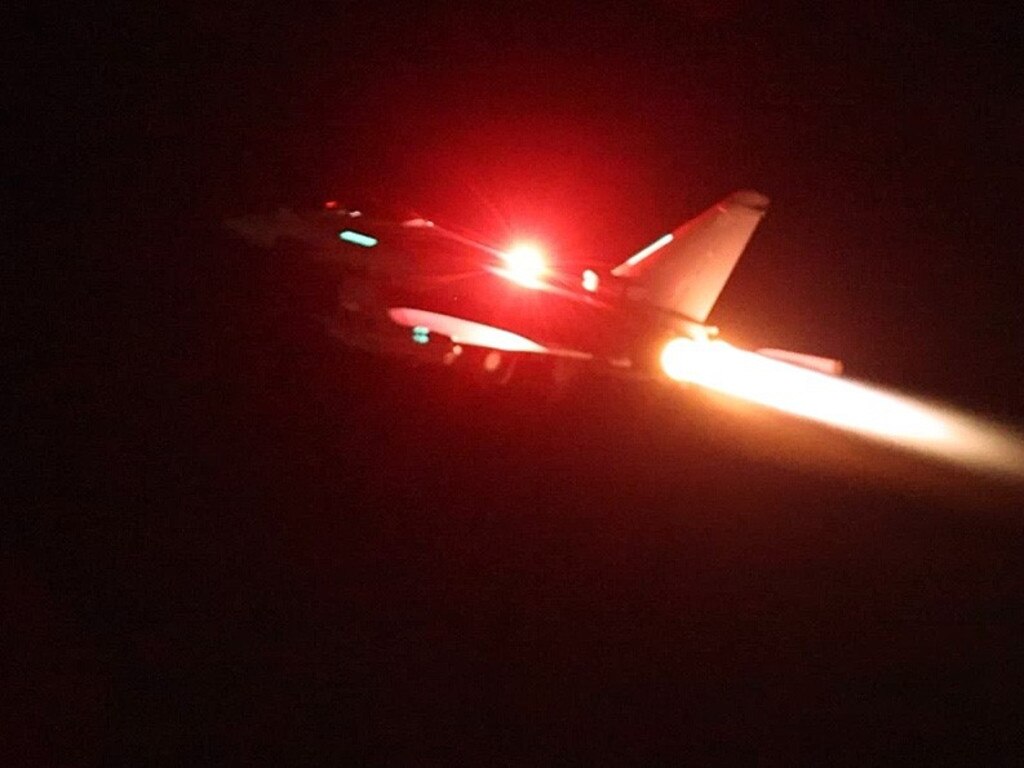
Biden called the strikes a “direct response” to the “unprecedented” attacks by the Houthi, “including the use of anti-ship ballistic missiles for the first time in history”.
“These attacks have endangered US personnel, civilian mariners, and our partners, jeopardised trade, and threatened freedom of navigation,” he said.
Blaming the Houthi for ignoring “repeated warnings”, UK Prime Minister Rishi Sunak said in a statement the strikes were “necessary and proportionate”.
US Defence Secretary Lloyd Austin said the strikes “targeted sites associated with the Houthi’ unmanned aerial vehicle, ballistic and cruise missile, and coastal radar and air surveillance capabilities”.
A joint statement by the United States, Britain, Australia, Bahrain, Canada, Denmark, Germany, the Netherlands, New Zealand and South Korea said the “aim remains to de-escalate tensions and restore stability in the Red Sea”.
“But let our message be clear: we will not hesitate to defend lives and protect the free flow of commerce in one of the world’s most critical waterways in the face of continued threats,” it said.
The Houthi said there was “no justification” for the air strikes and warned that attacks on Israel-linked shipping would continue.
“We affirm that there is absolutely no justification for this aggression against Yemen, as there was no threat to international navigation in the Red and Arabian Seas, and the targeting was and will continue to affect Israeli ships or those heading to the ports of occupied Palestine,” Houthi spokesman Mohammed Abdulsalam posted on X, formerly Twitter.

Yemen’s neighbour Saudi Arabia, which is trying to end its involvement in a nine-year war with the Houthi, urged against escalation.
“The Kingdom of Saudi Arabia is following with great concern the military operations,” a foreign ministry statement said, calling for “self-restraint and avoiding escalation”.
The Western strikes could risk turning an already-tense situation in the Middle East into a wider conflagration pitting the United States and Israel against Iran and its regional proxies.
The Houthi rebels say they are acting in solidarity with Palestinians in response to Israel’s bombardment of Gaza after the October 7 attack, and have launched a series of drones and missiles towards Israel.
Israel has also been facing cross-border fire along its northern frontier from Iran-backed militants in Syria and Lebanon — particularly the Hamas-aligned Hezbollah — and has responded with strikes of its own in both countries.
US and allied forces in Iraq and Syria have also faced stepped-up attacks since the outbreak of the war in Gaza, with Washington responding to several by bombing the sites of pro-Iran groups.
The United States and its allies had issued a series of increasingly stern warnings to the Houthi to stop the shipping attacks, although Washington has been wary of inflaming regional tensions.
